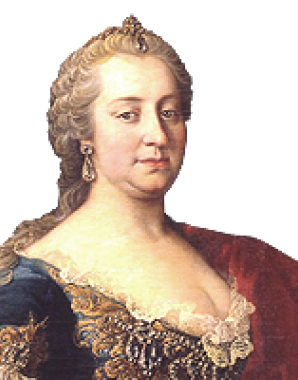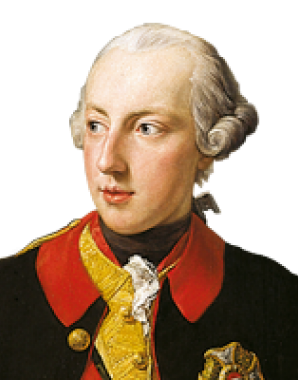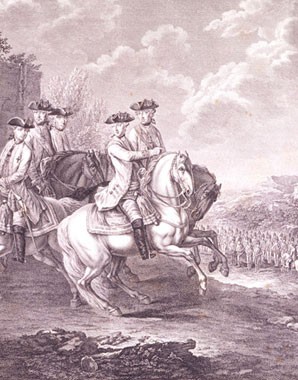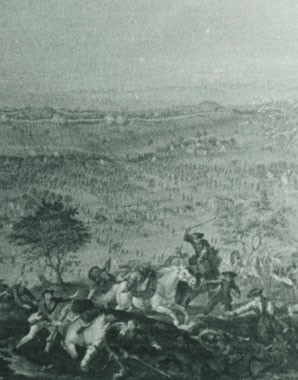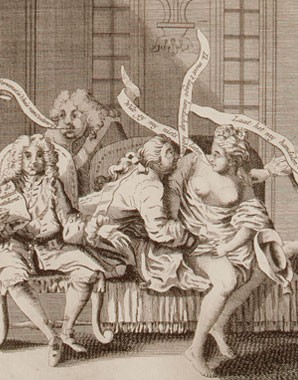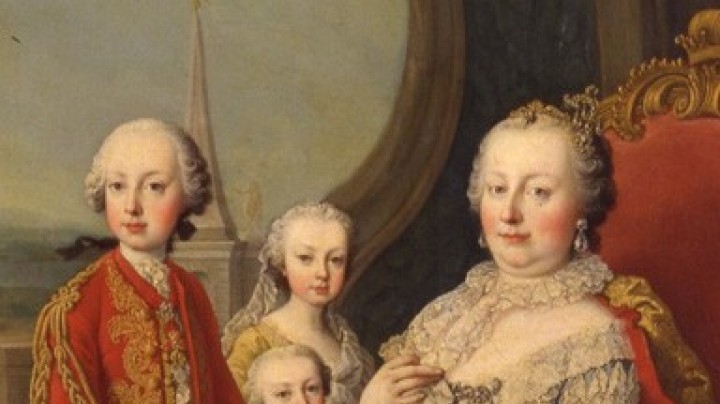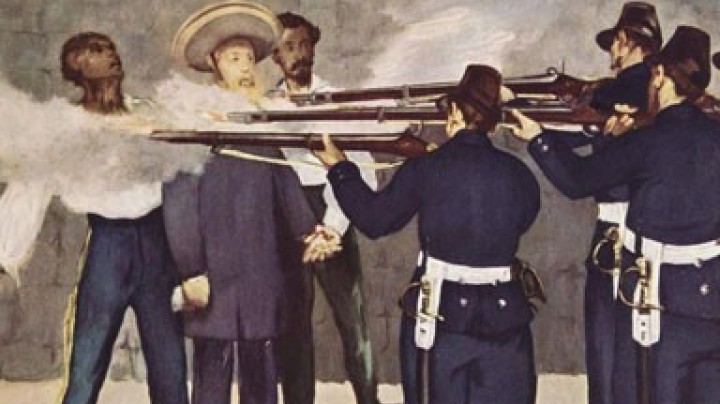A war over plums and potatoes
Known as the ‘plum scrum’ or ‘potato war’, the War of the Bavarian Succession was by no means as harmless a conflict as these nicknames suggest.
Maria Theresa in 1778 to her son Joseph IIBut never forget: better a mediocre peace than a glorious war.
Report from an encampment on the effects of dysenteryThe cesspits set up beside the camp and the earth between the pits and the tents were red from the blood of those who dragged themselves to and fro. Innumerable large flies danced over this horrific place. We had perhaps as many as ten thousand sick, of whom an enormous proportion died.
Joseph II in a letter to his mother Maria Theresa on the subject of the district of the Inn gained in the War of the Bavarian SuccessionThe disorder that prevailed here was even greater than the stupidity of the inhabitants, which is saying a great deal given that the latter is quite beyond words.
From 1765, Joseph II was in charge of the army but had no opportunity to put his soldiers into the field, as Maria Theresa’s inglorious experiences had made her sick of war. Shortly after her death, Joseph saw a chance to make a bid for Bavaria. Although he did not start the kind of conflagration his mother had in the Seven Years’ War, he did share her fate of falling foul of Frederick of Prussia.
Heirs to thrones regularly faced crises when it came to the succession: as the Habsburgs found in 1740, their hereditary or chartered rights did not prevent other powers from making their own claims. When the Bavarian succession came up for grabs in 1777, the boot was on the other foot: as from the Habsburg point of view the Bavarian electors Maximilian III Joseph and Karl Theodor the elector Palatine had no legitimate heirs, Joseph II saw his chance to compensate the dynasty for the loss of Silesia and laid claim to Lower Bavaria and the Upper Palatinate. In January 1778, on Joseph’s instructions, Chancellor Kaunitz compelled the Bavarian ambassador in Vienna to accept Austria’s demand that Bavaria be exchanged for the Austrian Netherlands. Austrian troops forthwith occupied parts of Bavaria, thus arousing the displeasure of Frederick of Prussia, who declared war on Joseph and marched into Bohemia.
Joseph II took over supreme command in person but the war was ‘only’ a defensive one and did not lead to any battles. Indeed, problems with commissariat, finances and disease – dysentery claimed large numbers of victims on both sides – led to the War of the Bavarian Succession never really becoming a ‘proper’ war at all. The principal bones of contention were foodstuffs, which was why the war was called the ‘plum scrum’ (‘Zwetschkenrummel’) by the Austrians and the ‘potato war’ (‘Kartoffelkrieg’) by the Prussians. However, these nicknames belittle the misery suffered by those who lived in the areas affected and make light of the considerable war casualties: Austria lost five generals, 175 officers, 19,257 soldiers, 2,838 horse and six cannon, and Prussia one general, 87 officers, 19,416 soldiers, 3,835 horse and five cannon.
In May 1779, Maria Theresa made peace with Prussia without Joseph’s knowledge, relinquishing any claim to the Bavarian succession in return for a modest gain in the form of the district of the Inn (‘Innviertel’). Joseph was so offended at his mother going over his head in this manner that no sooner had she died than he made a further attempt to exchange Belgium for Bavaria, but was once again frustrated by Prussia.

